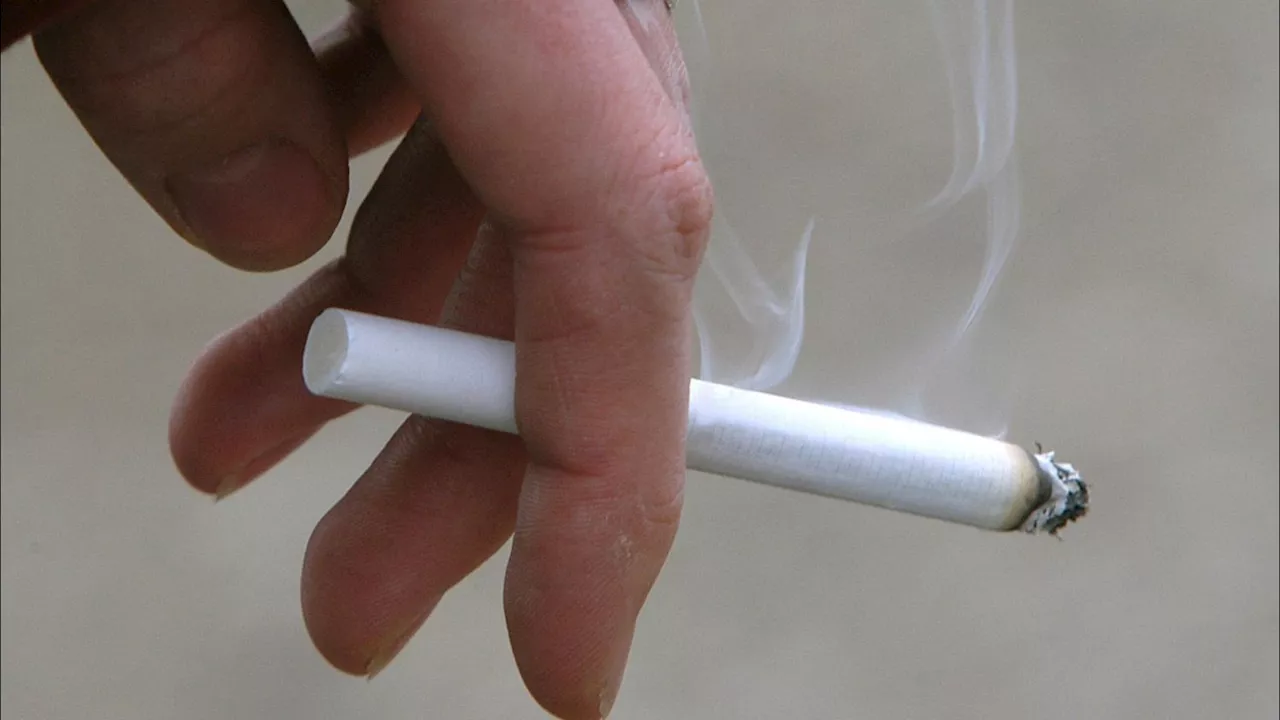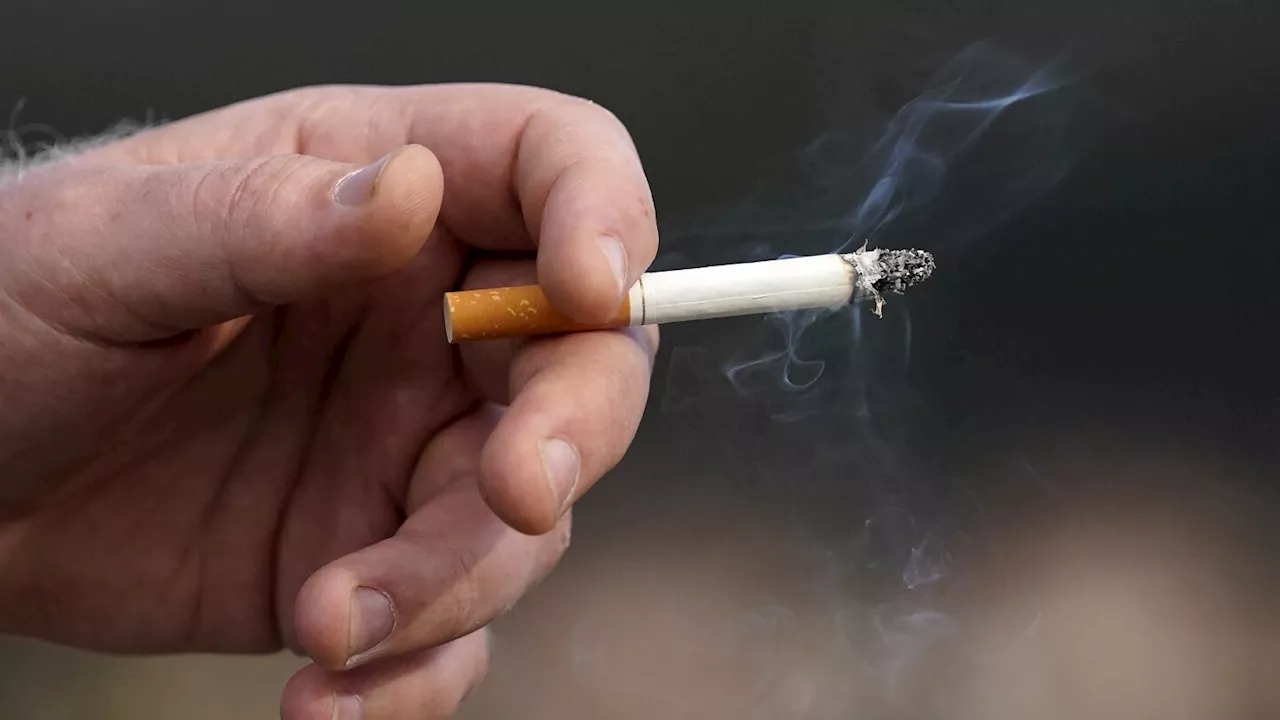The U.S. Food and Drug Administration (FDA) proposes a groundbreaking rule to significantly reduce nicotine levels in cigarettes and other tobacco products, aiming to make them less addictive and potentially save millions of lives. However, the proposal's future remains uncertain due to political considerations and anticipated legal challenges from the tobacco industry.
In a landmark move, the U.S. Food and Drug Administration ( FDA ) has proposed a rule aimed at significantly reducing the addictiveness of cigarettes and other tobacco products by slashing their nicotine content. The comprehensive proposal, outlined in a 334-page report published on Wednesday, seeks to establish a maximum nicotine level in cigarettes and other tobacco products, potentially lowering it to a point where they no longer sustain addiction.
FDA officials estimate that if implemented, this policy could save millions of lives over the coming decades. However, the proposal's future remains uncertain as it arrives in the closing days of President Joe Biden's term. President-elect Donald Trump has yet to comment on the policy, leaving its fate hanging in the balance. FDA Commissioner Dr. Robert Califf emphasized the potential impact of the rule, stating, 'This action, if finalized, could save many lives and dramatically reduce the burden of severe illness and disability.' The proposed regulation sets a maximum nicotine level of 0.7 milligrams (mg) per gram of tobacco, a substantial reduction from current levels that can range from 6 mg to 28 mg per gram. Based on extensive research, the FDA projects that within a year of implementation, nearly 13 million people could successfully quit smoking. Smoking is the leading cause of preventable death in the U.S., responsible for an estimated 480,000 deaths annually. It contributes significantly to heart disease, stroke, lung cancer, and respiratory illnesses. Reducing nicotine in cigarettes holds the potential to prevent millions of premature deaths and add millions of years of healthy life for Americans. Despite the potential benefits, the policy has encountered opposition from tobacco companies, who contend that such regulations could fuel the growth of illegal markets. While the FDA possesses the authority to regulate nicotine levels, the process of finalizing the rule is anticipated to be lengthy, potentially spanning several years. Upon finalization, manufacturers would be granted a two-year window to comply with the new standards. It is highly probable that tobacco companies will challenge the rule in court, which could further prolong the implementation timeline. This proposal is part of a broader FDA initiative to combat tobacco-related illnesses. Other recent efforts include updated definitions for 'healthy' labeling on food and beverages and increased restrictions on the promotion and sale of tobacco products. Public health advocates have lauded the FDA's proposed nicotine rule as a significant stride towards reducing tobacco use. Beyond its impact on overall health, smoking has a visible effect on the body, leading to wrinkles and an aged appearance. It also negatively affects mood and mental well-being.
NICOTINE FDA TOBACCO CIGARETTES HEALTH ADDICTION REGULATION PUBLIC HEALTH
United States Latest News, United States Headlines
Similar News:You can also read news stories similar to this one that we have collected from other news sources.
 FDA Proposes to Cut Nicotine in CigarettesThe Food and Drug Administration is proposing to limit the addictiveness of cigarettes by reducing nicotine levels to 0.7 milligrams per gram of tobacco, aiming to encourage smokers to switch to less harmful alternatives and curb youth smoking. The proposed rule, which would apply to traditional cigarettes, roll-your-own tobacco, cigars, and pipe tobacco, faces potential opposition from the tobacco industry.
FDA Proposes to Cut Nicotine in CigarettesThe Food and Drug Administration is proposing to limit the addictiveness of cigarettes by reducing nicotine levels to 0.7 milligrams per gram of tobacco, aiming to encourage smokers to switch to less harmful alternatives and curb youth smoking. The proposed rule, which would apply to traditional cigarettes, roll-your-own tobacco, cigars, and pipe tobacco, faces potential opposition from the tobacco industry.
Read more »
 FDA proposes limiting nicotine levels in cigarettes, other tobacco productsThe U.S. Food and Drug Administration proposed a new rule on Wednesday limiting nicotine levels in cigarettes and certain other tobacco products.
FDA proposes limiting nicotine levels in cigarettes, other tobacco productsThe U.S. Food and Drug Administration proposed a new rule on Wednesday limiting nicotine levels in cigarettes and certain other tobacco products.
Read more »
 FDA Proposes Limits on Nicotine in CigarettesThe Food and Drug Administration (FDA) is proposing to cap nicotine levels in cigarettes to make them less addictive. The agency states that this could help millions of smokers quit and prevent young people from starting. Although the proposal faces potential legal challenges from tobacco companies, it represents a significant step in curbing the health risks associated with smoking.
FDA Proposes Limits on Nicotine in CigarettesThe Food and Drug Administration (FDA) is proposing to cap nicotine levels in cigarettes to make them less addictive. The agency states that this could help millions of smokers quit and prevent young people from starting. Although the proposal faces potential legal challenges from tobacco companies, it represents a significant step in curbing the health risks associated with smoking.
Read more »
 FDA Proposes New Rule to Limit Nicotine in Tobacco ProductsThe U.S. Food and Drug Administration (FDA) proposed a rule on Wednesday to limit nicotine levels in cigarettes and other tobacco products, aiming to reduce addiction and make quitting easier. If finalized, the U.S. would be the first country to implement such a limit.
FDA Proposes New Rule to Limit Nicotine in Tobacco ProductsThe U.S. Food and Drug Administration (FDA) proposed a rule on Wednesday to limit nicotine levels in cigarettes and other tobacco products, aiming to reduce addiction and make quitting easier. If finalized, the U.S. would be the first country to implement such a limit.
Read more »
 FDA Proposes Major Nicotine Limit for Cigarettes and Other Tobacco ProductsThe FDA seeks to curb the addictive nature of cigarettes and other combusted tobacco products by proposing a rule to limit nicotine levels. The agency projects significant reductions in smoking initiation and existing smokers, ultimately aiming to save millions of lives and alleviate the burden of tobacco-related illness.
FDA Proposes Major Nicotine Limit for Cigarettes and Other Tobacco ProductsThe FDA seeks to curb the addictive nature of cigarettes and other combusted tobacco products by proposing a rule to limit nicotine levels. The agency projects significant reductions in smoking initiation and existing smokers, ultimately aiming to save millions of lives and alleviate the burden of tobacco-related illness.
Read more »
 FDA Proposes to Cap Nicotine in Cigarettes to Reduce AddictionThe FDA has proposed a groundbreaking plan to limit nicotine in cigarettes to make them less addictive. This move, supported by anti-smoking advocates, aims to help millions quit smoking and prevent young people from starting. However, the proposal faces potential legal challenges from tobacco companies and a lengthy implementation process.
FDA Proposes to Cap Nicotine in Cigarettes to Reduce AddictionThe FDA has proposed a groundbreaking plan to limit nicotine in cigarettes to make them less addictive. This move, supported by anti-smoking advocates, aims to help millions quit smoking and prevent young people from starting. However, the proposal faces potential legal challenges from tobacco companies and a lengthy implementation process.
Read more »
